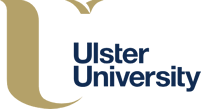About the Project
BT Ireland Innovation Centre:
This studentship is one of twelve such PhD studentships, offered in collaboration with British Telecom and tenable in the School of Computing, Faculty of Computing, Engineering and the Built Environment at Ulster University based at the Jordanstown campus. The studentships relate to different research topics in future telecommunication networks and services with a particular emphasis on Intelligent Systems, Future Big Data Analytics, Internet of Things (IoT), Cyber Security, Fixed and Mobile Network Services. They are part of the recently funded BT Ireland Innovation Centre (BTIIC) which is a collaborative project between BT and Ulster University, with a large presence in BT Belfast. BTIIC is an ambitious research and engineering project, initially running for 5 years, and funded by Invest Northern Ireland. It comprises two Research Workstreams: (i) Intelligent Systems, and (ii) IoT – Trust, Security and Dependability. The research topics proposed for the 12 studentships are in these broad areas.
Project summary:
Modern organisations are highly dependent on often complex processes with the need for near continual optimisation to account for near continual change. In the telecoms industry complex network and operational management systems often fit into this category. Emerging autonomic, optimisation and deep-learning systems promise a means to transform the level of automation and responsiveness to change of these types of processes.
British Telecom have developed advanced machine learning methods for autonomic computing and generated associated patents. It is expected that the PhD candidate will build upon this research foundation to investigate and develop novel adaptive models based on recent development in machine learning. Of particular interest is the development of machine learning algorithms that can adapt to data over time, for example considering concept drift, to guarantee performance within set policies or service level agreements.
Additional Application Information:
On the application form applicants should select one main BTIIC project and a maximum of two further project titles in which they are interested.
During the lifetime of the project there will be opportunities to work with BT Belfast Global Development Centre and there also may be openings to spend a period of time as part of a related Internship at BT Adastral Park Research Laboratories in Martlesham, Suffolk, UK (see (http://atadastral.co.uk/). Arrangements for the internship / visits will be made by the supervisory team of the PhD project in conjunction with BT, subject to satisfactory student academic performance on the project.
ATAS Summary:
Modern organisations are highly dependent on often complex processes with the need for near continual optimisation to account for near continual change. Emerging autonomic and optimisation systems promise a means to transform the level of automation and responsiveness to change of these types of processes. It is expected that the PhD candidate will build upon this research foundation to investigate and develop novel adaptive models based on recent development in machine learning. Of particular interest is the development of machine learning algorithms that can adapt to data over time, for example considering concept drift, to guarantee performance within set policies or service level agreements.
Keywords:
Computing, Intelligent Systems, Machine Learning, Concept Drift

 Continue with Facebook
Continue with Facebook

